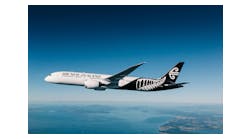November 23, 2015, WASHINGTON, DC - In September, full-time equivalent employment (FTE) at U.S. scheduled passenger airlines increased 3.3% over September 2014, according to the Bureau of Transportation Statistics (BTS). September was the 22nd consecutive month that FTE employment for U.S. scheduled passenger airlines exceeded the previous year’s and was the highest monthly total since September 2008. According to BTS, “The four network airlines that collectively employ two-thirds of the scheduled passenger airline FTEs reported 3.6 percent more FTEs in September 2015 than in September 2014.
Find complete BTS data at http://www.rita.dot.gov/bts/press_releases/bts052_15.
BTC ANALYSIS
These findings demolish U.S. major airlines’ claims that Gulf carrier success in U.S. markets is harming them and killing aviation jobs. U.S. leisure and business travelers have embraced the new competitive choices and alternatives provided by the Gulf carriers and value their excellent products and customer service levels.
In point of fact, Gulf carrier codeshare partners JetBlue and Alaska Airlines saw their August FTE employment year-over-year grow 11.2% and 9.9% respectively against 3.6% for U.S. major network carriers. This impressive employment growth is a result, in no small part, of passenger feeds from Gulf carrier partners. Beyond creating new aviation jobs, the success of the Gulf carriers has also generated tens of thousands of U.S. aerospace and travel and tourism jobs in communities across the nation. When Emirates Airlines initiated service this fall to Orlando, for example, some 1,400 local jobs were created.
What’s more, JetBlue added high-paying jobs and drove down average airfares 40% for consumers in the monopolized Boston to Detroit city-pair market when its partner Emirates initiated service to Boston in 2014 and provided the necessary passenger feed to enable JetBlue to contest the market. Had Norwegian Air International’s application been approved some 19 months ago to serve the U.S., thousands of jobs and new consumer choices would have materialized by now.
Importantly, the entry of foreign carriers into U.S. markets supports President Obama’s national policy goals of (a) growing annual foreign visitors from 74 million today to 100 million by 2021 and (b) generating the tens of thousands of new jobs necessary to serve the additional visitors.
The Obama Administration needs to take a firm stand support of consumers and the national interest and reject commercial protectionism before irreparable damage is done to the reputation of the United States as a reliable trade partner and the worldwide Open Skies system unravels.
For U.S. Open Skies policy foundational documents, analyses, statements and press reports, please visit http://BTC.travel.
About BTC
Founded in 1994, the mission of Business Travel Coalition is to interpret industry and government policies and practices and provide a platform so that the managed travel community can influence issues of strategic importance to their organizations.




